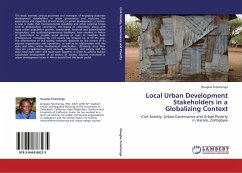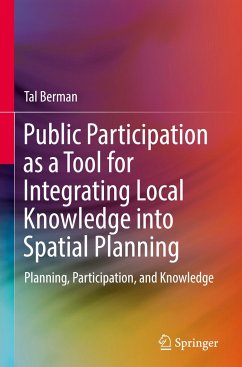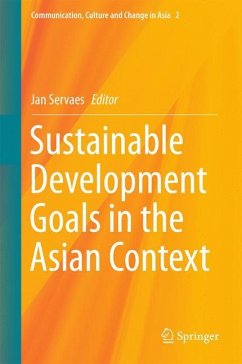
Local Urban Development Stakeholders in a Globalizing Context
Civil Society, Urban Governance and Urban Poverty in Harare, Zimbabwe
Versandkostenfrei!
Versandfertig in 6-10 Tagen
45,99 €
inkl. MwSt.

PAYBACK Punkte
23 °P sammeln!
This book assesses various processes and strategies of engaging disparate development stakeholders in urban governance and evaluates the experiences and capacities of civil society in urban development in Harare. A case is made that macroeconomic instability and other external forces such as globalization constraints, the legacy of colonialism, along with rapid urban population growth, institutional, financial and administrative incapacities, and outdated governance traditions, have resulted in failure of government to provide social services or even to maintain basic infrastructure. Consequen...
This book assesses various processes and strategies of engaging disparate development stakeholders in urban governance and evaluates the experiences and capacities of civil society in urban development in Harare. A case is made that macroeconomic instability and other external forces such as globalization constraints, the legacy of colonialism, along with rapid urban population growth, institutional, financial and administrative incapacities, and outdated governance traditions, have resulted in failure of government to provide social services or even to maintain basic infrastructure. Consequently, civil society has stepped up to fill the gap. The effectiveness of civil society; however, depends on the nature of its internal organization and operations, as well as its relationships with the state and other urban development stakeholders. Ultimately, since their roles are complementary and mutually reinforcing, civil society and the state need each other and must work together in order to achieve human sustainable development of all sectors of society. Anyone interested in urban development issues in Africa should find this book useful.












